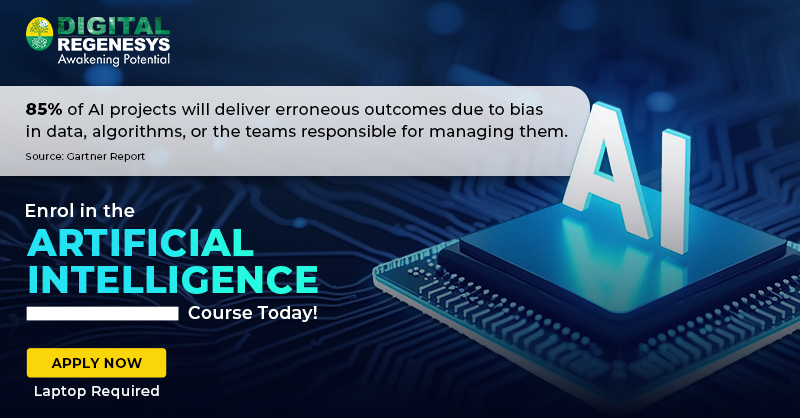AI in Zambia – Strategy for 2026

Can Zambia become a continental leader in artificial intelligence? With the African nations investing in digital transformation, Zambia has the potential to leverage AI to accelerate economic growth, improve public services, and foster social development.
Emerging technologies, supportive policies, and a growing interest in innovation position the country at a critical inflexion point.
In this article, we explore Zambia’s AI strategy for 2026, highlighting national vision, governance applications, social impact, workforce transformation, innovation collaboration, and future trends that could shape the country’s AI trajectory.
National AI Vision and Roadmap
Zambia’s national strategy is focused on leveraging AI for economic growth, governance, and social inclusion. The government is investing in research initiatives, digital infrastructure, and regulatory frameworks to encourage responsible AI adoption.
By establishing ethical guidelines and promoting data-driven decision-making, Zambia aims to create a sustainable AI ecosystem that benefits both public and private sectors.
Strategic policies lay the foundation for responsible and impactful AI adoption.
Key Highlights:
- Government-led AI research and development programs
- Ethical AI and governance frameworks for transparency
- Public-private collaborations fostering innovation
- Incentives for startups and technology adoption

AI in Governance and Public Services
Artificial intelligence is helping Zambian authorities optimise public service delivery and policymaking. Predictive analytics enables more efficient resource allocation, smarter urban planning, and proactive responses to citizen needs.
AI-powered platforms enhance transparency and accountability, enabling government departments to track performance and engage citizens in real-time. These tools not only streamline operations but also build public trust in digital services.
Leveraging AI in governance demonstrates its potential to transform societal structures and enhance citizen experiences.
Applications in Governance:
- Optimising resource allocation across public sectors
- Smart governance dashboards for transparency
- Predictive urban planning and infrastructure management
- AI-driven citizen feedback and engagement systems
Read more on the Advantages and Disadvantages of Artificial Intelligence.
Cross-Border AI Collaboration and Innovation
Zambia’s AI ambitions extend beyond national borders. Collaborative efforts with regional and international partners are fostering knowledge sharing, joint research, and innovation hubs. By connecting startups, universities, and government agencies, Zambia can access global expertise while tailoring solutions to local challenges. These collaborations help accelerate AI adoption, encourage entrepreneurship, and position the country as a regional leader in applied AI technologies.
Cross-border partnerships enable Zambia to harness global knowledge while addressing local development priorities.
Collaboration Highlights:
- Partnerships with African and international AI research networks
- Innovation labs and technology incubators for startups
- Regional knowledge exchange for AI best practices
- Public-private collaboration on applied AI solutions
AI and Social Impact
Artificial intelligence in Zambia is being deployed to address societal challenges, creating tangible benefits for citizens. AI-driven education platforms provide personalised learning paths, while predictive healthcare models enhance access to medical services, especially in rural areas.
Data-driven programs are improving social inclusion, empowering communities, and fostering equitable development. By prioritising human-centric AI, Zambia ensures that technological progress directly contributes to societal wellbeing.
Social impact applications highlight the potential of AI to improve the quality of life across diverse communities.
Key Social Applications:
- Personalised learning platforms for education
- Predictive healthcare for early diagnosis and treatment
- AI tools supporting social inclusion and rural empowerment
- Data-driven initiatives addressing societal challenges
Read more on Why Invest In An Artificial Intelligence Course?
Workforce Transformation and Skill Development
Preparing Zambia’s workforce for an AI-driven economy is critical. Professionals need training in machine learning, data analytics, and AI implementation to meet industry demands. Upskilling and reskilling programs help bridge the talent gap, fostering innovation-ready individuals who can contribute to AI projects.
Practical, hands-on training ensures that skills are not only theoretical but applicable to real-world problems, creating a workforce capable of leveraging AI across sectors.
Structured AI education equips professionals to lead and innovate in a rapidly evolving technological landscape.
Workforce Development Initiatives:
- AI skill-building programs for students and professionals
- Hands-on project-based learning for practical experience
- Ethical AI training for responsible deployment
- Courses like the Digital Regenesys Artificial Intelligence Certificate Course
Innovation Hubs and Startups
Zambia’s emerging AI ecosystem is bolstered by innovation hubs and entrepreneurial activity. Startups are developing AI solutions that address local challenges, such as optimising agriculture, improving logistics, and enhancing education.
These hubs provide mentorship, resources, and access to technology, enabling innovators to experiment, scale solutions, and contribute to the country’s AI ecosystem. Local entrepreneurship is crucial for sustainable AI growth and ensures solutions are contextually relevant.
Innovation hubs play a central role in nurturing AI-driven enterprises capable of transforming Zambia’s economy.
Key Initiatives:
- AI-powered tools for agriculture and logistics
- Adaptive learning solutions for personalised education
- Data analytics for small businesses and enterprises
- Collaborative innovation spaces for research and prototyping
AI for Sustainability and Smart Development
AI is helping Zambia address environmental and development challenges. Predictive modelling aids in climate adaptation, while smart energy systems optimise electricity distribution and renewable energy use.
AI-driven monitoring enables efficient natural resource management and sustainable urban planning. These applications demonstrate how technology can support economic growth while preserving environmental integrity, ensuring that development aligns with long-term sustainability goals.
AI’s role in sustainability showcases its capacity to generate economic, social, and environmental benefits simultaneously.
Sustainability Applications:
- Renewable energy optimisation and smart grids
- Climate adaptation predictive models
- Resource management and conservation initiatives
- AI-assisted urban planning for sustainable development
Read more on When Does Artificial Intelligence Course Duration Align with Career Goals?
Emerging Trends and Future Opportunities
By 2026, Zambia’s AI ecosystem is expected to expand significantly. Emerging trends include AI adoption in fintech, smart governance, healthcare, and education. International collaborations, AI research hubs, and regional knowledge-sharing networks will continue to drive innovation.
AI-powered decision-making tools, sustainable development applications, and entrepreneurship opportunities will further position Zambia as a forward-looking nation embracing technological progress.
Keeping abreast of these trends allows policymakers, professionals, and businesses to harness AI strategically.
Key Trends:
- AI in smart agriculture and financial services
- Predictive analytics in healthcare and public services
- Regional and international AI collaboration
- AI integration in sustainable urban planning
Challenges and Strategic Recommendations
Despite the potential, Zambia faces challenges in AI adoption. Limited infrastructure, connectivity, and talent pipelines constrain growth. Regulatory frameworks are still evolving, and data management remains a hurdle.
Strategic recommendations include investing in AI education, strengthening digital infrastructure, fostering public-private partnerships, and encouraging local entrepreneurship. By addressing these challenges, Zambia can position itself as a regional leader in AI while ensuring inclusive growth.
Overcoming these obstacles is key to unlocking the full potential of AI for national development.
Challenges & Recommendations:
- Limited AI expertise and digital literacy gaps
- Infrastructure and connectivity limitations
- Regulatory and ethical adoption hurdles
- Promote local entrepreneurship and innovation

Conclusion
Zambia stands at a pivotal point in its AI journey. By focusing on governance, social impact, workforce development, innovation hubs, and sustainability, the country can leverage AI to drive economic growth and societal progress.
For professionals seeking to gain practical AI skills, the Digital Regenesys Artificial Intelligence Certificate Course provides hands-on experience in AI tools, machine learning, and data analytics, preparing learners to implement solutions effectively.
Visit Digital Regenesys to gain AI expertise and contribute to Zambia’s AI-driven future.
Last Updated: 1 November 2025